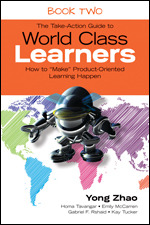Seven Steps for Developing a Proactive Schoolwide Discipline Plan
A Guide for Principals and Leadership Teams
- Geoff Colvin - Behavior Associates
- George Sugai - University of Connecticut, USA
In Pursuit of Positive and Proactive Behaviors – The Challenge
Every school wants to provide a safe, preventive, and positive learning environment, but recent shifts in societal and cultural norms have given rise to reactions that can be injurious, uncivil, and discriminatory. Creating and maintaining positive and proactive school discipline plans while preserving societal values and norms is more challenging than ever. Urges to get toughand enact zero tolerance policies may give impetus, but not tools. Schools are often left wondering how to address problematic behaviors, make real change happen, and accomplish their intended goals.
Seven Steps shows practitioners and pre-service educators what, why, and how to build effective school-wide discipline practices using both data and documented successes. It offers a step-by-step process that maximizes teaching and learning and prevents problem behavior while establishing and maintaining desirable behavior to enhance school success. Seven procedural steps show how to:
· Develop, teach, and maintain schoolwide behavior expectations
· Correct problem behaviors
· Sustain your plan for the long haul
Get started in creating a positive and supportive environment by exposing students to the best possible practices by all teachers in all settings.









